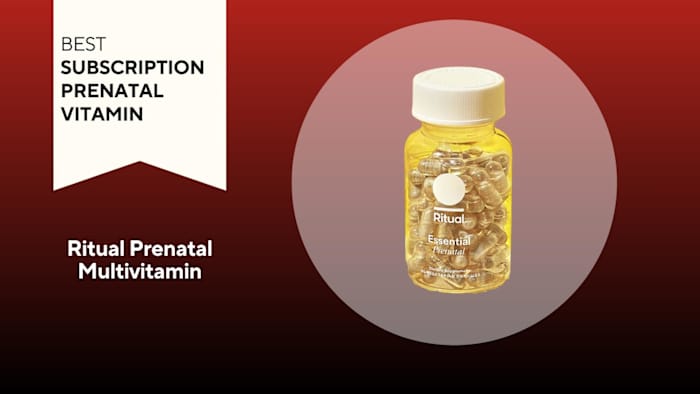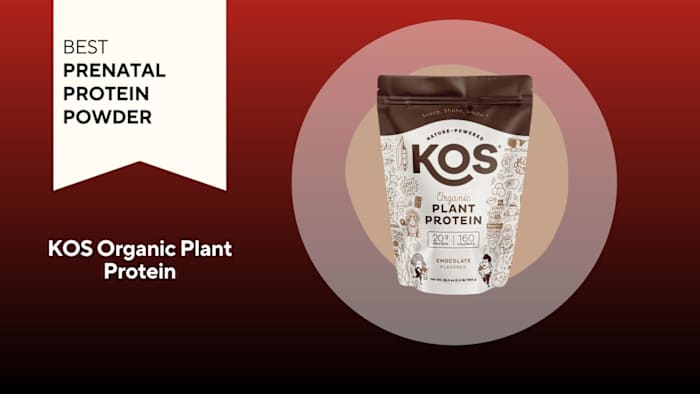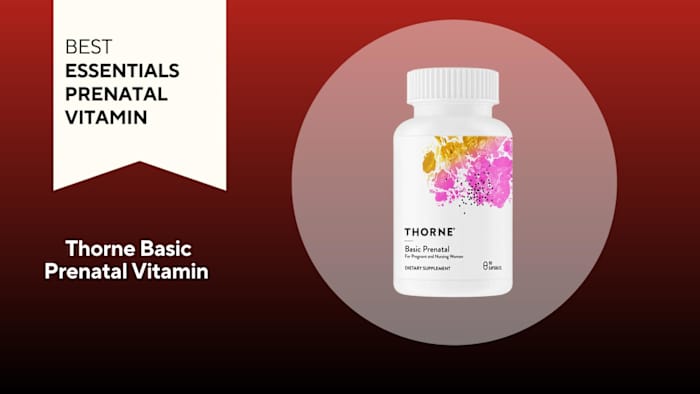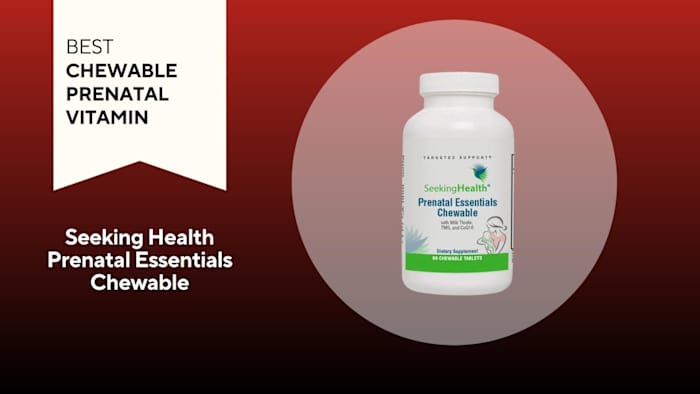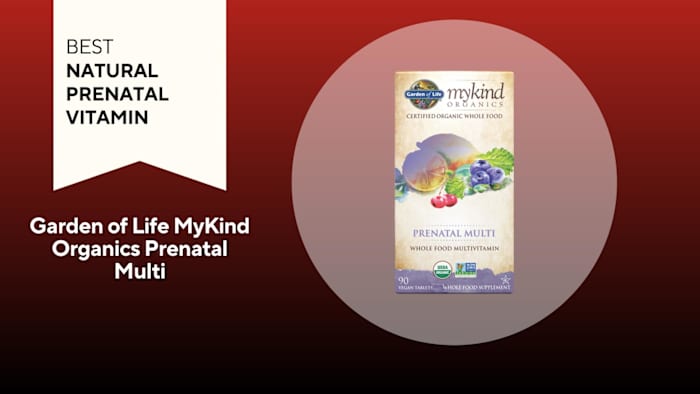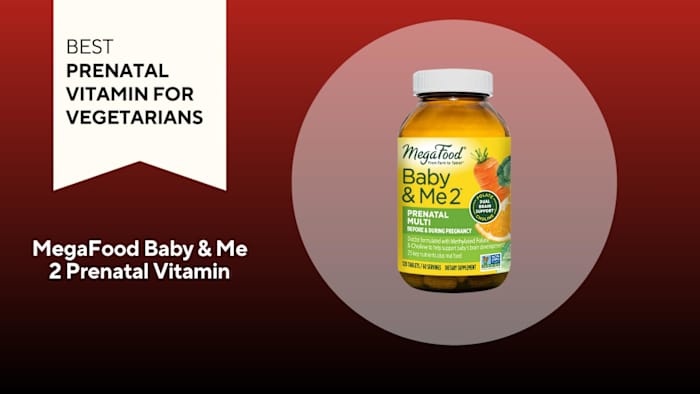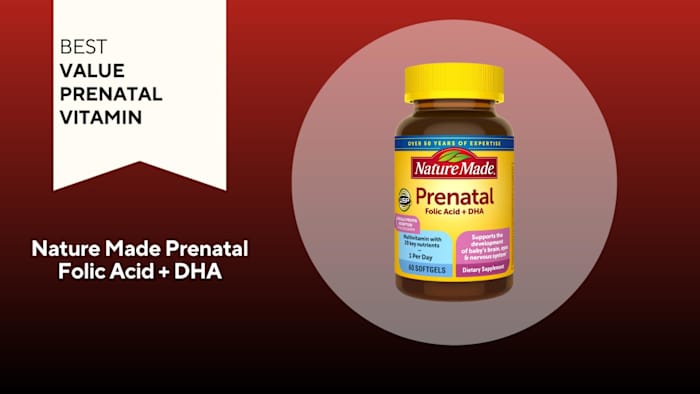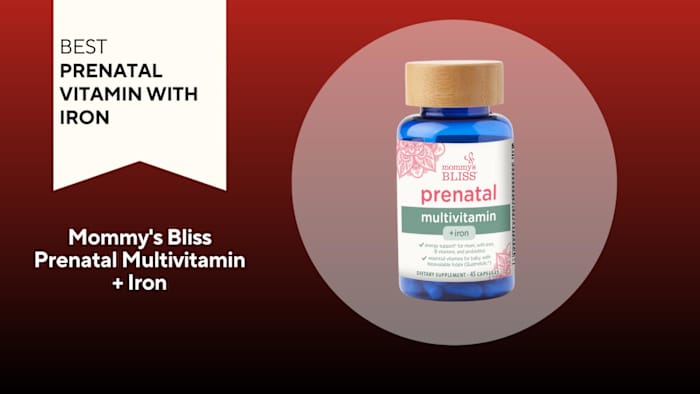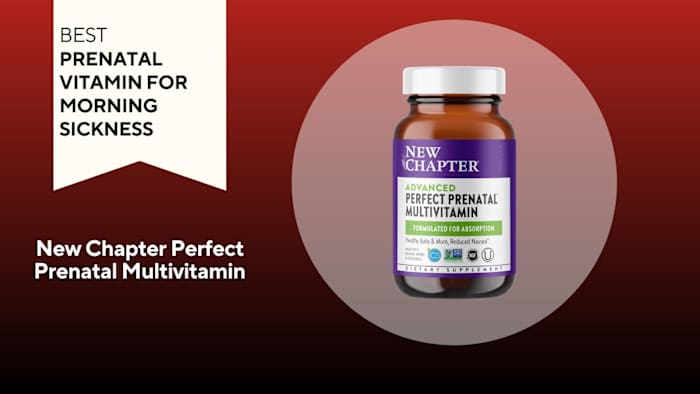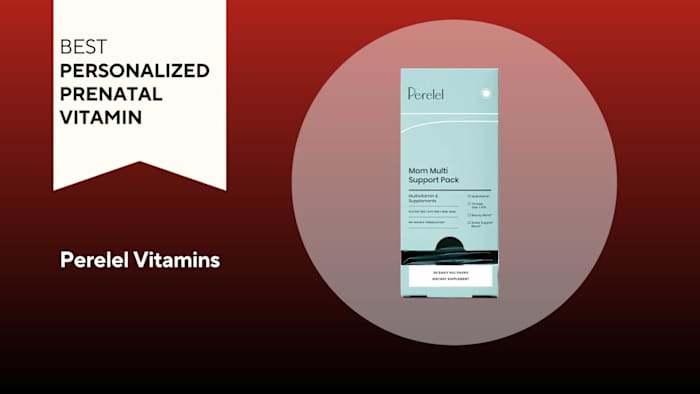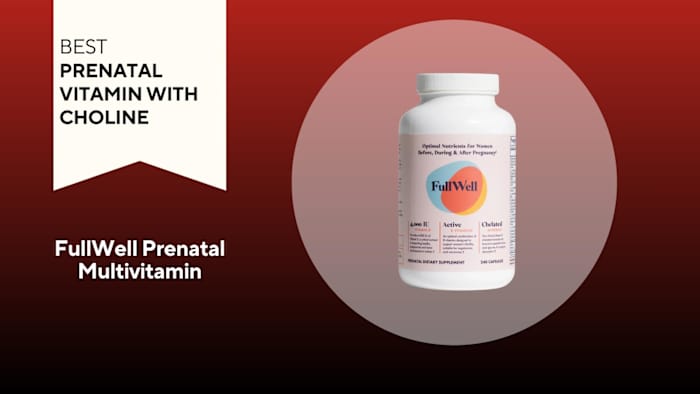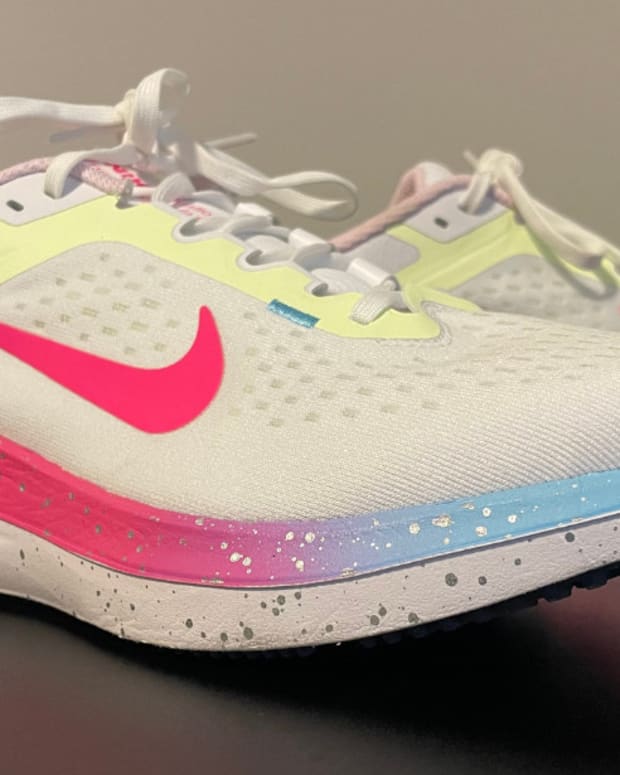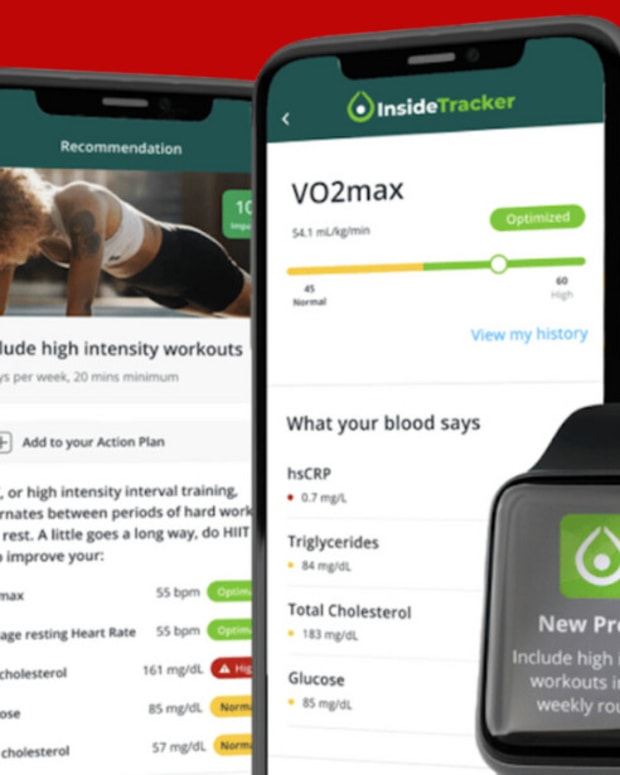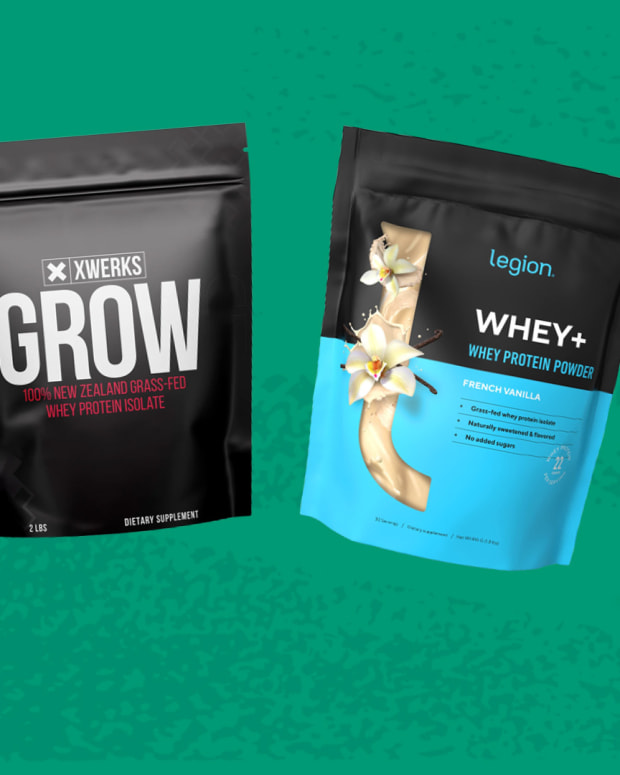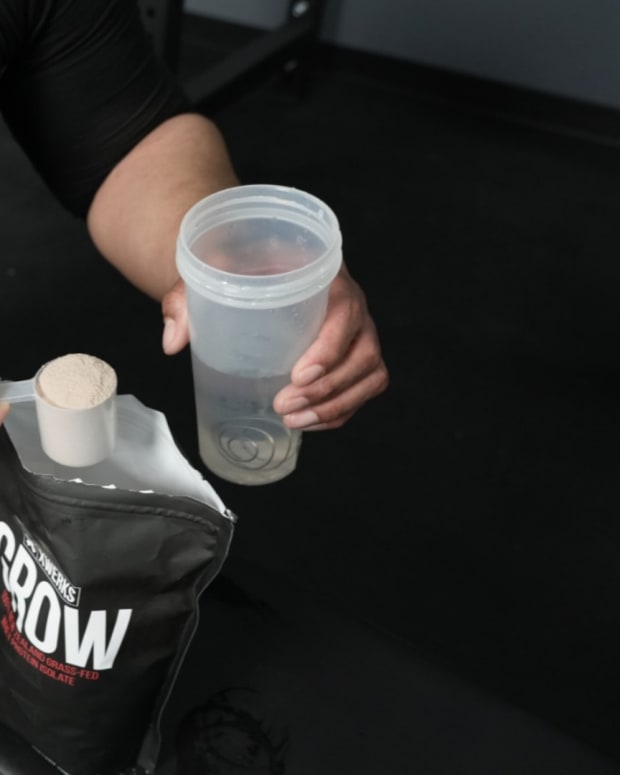The products featured in this article have been independently reviewed. When you buy something through the retail links on this page, we may earn commission at no cost to you, the reader. Sports Illustrated editorial staff are not involved in the creation of this content. Learn more here.
If you’re pregnant, chances are your physician has already recommended a prenatal vitamin. If not, you’re likely searching to find the best prenatal dietary supplement that’s available over the counter.
Prenatal multivitamins contain folate and other nutrients known to prevent poor health outcomes during pregnancy, such as neural tube defects, anemia, gestational diabetes, gestational high blood pressure, low birth weight and pre-eclampsia.
The best prenatal vitamin for your needs will depend on your lifestyle, nutritional needs and any pregnancy symptoms (like morning sickness). We’ve compiled our top picks of the best high-quality vitamins for 12 different types of pregnancy needs, as well as a guide to help you find the best prenatal vitamin option for you.
Related Post: The Best Postnatal Vitamins to Support New Moms
This content is meant to be informative, but should not be taken as medical advice. It is not intended for use as diagnosis, prevention or treatment of health problems. Always speak with your doctor before starting any new supplement or exercise regimen.
Our Picks for the Best Prenatal Vitamins:
- Best Subscription Prenatal Vitamin: Ritual Prenatal Multivitamin
- Best Prenatal Protein Powder: KOS Organic Plant Protein
- Best Essentials Prenatal Vitamin: Thorne Basic Prenatal Vitamin
- Best Chewable Prenatal Vitamin: Seeking Health Prenatal Essentials Chewable
- Best Natural Prenatal Vitamin: Garden of Life MyKind Organics Prenatal Multi
- Best Prenatal Vitamin for Vegetarians: MegaFood Baby & Me 2 Prenatal Vitamin
- Best Value Prenatal Vitamin: Nature Made Prenatal Folic Acid + DHA
- Best Prenatal Vitamin with Iron: Mommy's Bliss Prenatal Multivitamin + Iron
- Best Prenatal Vitamin for Morning Sickness: New Chapter Perfect Prenatal Multivitamin
- Best Personalized Prenatal Vitamin: Perelel Vitamins
- Best Prenatal Vitamin with Choline: FullWell Prenatal Multivitamin
Best Subscription Prenatal Vitamin: Ritual Prenatal
Get 25% off your first month of Ritual! Code: SI25
Key features:
- Type: Capsule
- Serving: 2 capsules
- Servings Per Container: 30
- Key Nutrients: Vitamin D3, Vitamin E, Folate, Vitamin B12, Biotin, Choline, Iron, Iodine, Magnesium, Boron, Omega-3 DHA, Vitamin K2
- Third Party Tested: IEH Laboratories
- Certifications: Non-GMO Verified, USP Verified, Certified B Corporation
Ritual is a monthly subscription brand that specializes in multivitamins for women and men. In addition to the usual assortment of vitamins and minerals that you’ll typically find in a prenatal vitamin, the Ritual Prenatal also includes choline and DHA. Choline is important for the development of the placenta, as well as the baby’s spinal cord and brain. A DHA supplementation is also important for fetal brain development. When taken during pregnancy, they’re associated with fewer complications, including fewer premature births.
Pros:
- Vegan, gluten-free, non-GMO and free of artificial colors and common allergens
- Includes choline and DHA
- Allows customers to see exactly where each ingredient was sourced
- Mint coating that smells and tastes good, according to customer reviews
- Free shipping and a 30-day money-back guarantee
Cons:
- Some customers have complained of “fish burps” after taking this vitamin
- Costs $1 a serving, which is more expensive than other options
Best Prenatal Protein Powder: KOS Organic Plant Protein
Key features:
- Type: Shake
- Serving: 2 scoops
- Servings Per Container: 28
- Key Nutrients: 20 grams of protein, Vitamin D, Iron, Vitamin E, Riboflavin, Folate, Iodine, Selenium, Manganese, Calcium, Potassium, Vitamin K, Niacin, Vitamin B12, Zinc, Copper, Chromium, Molybdenum
- Third Party Tested: N/A
- Certifications: USDA Organic, California Certified Organic Farmers (CCOF), made in a Good Manufacturing Practices certified (cGMP) factory
KOS Organic Plant Protein comes fully loaded with 20 grams of pea protein per serving and many of the important nutrients typically included in a prenatal supplement. It also contains flax and chia seeds, which supply omega-3 fatty acids thought to be important for fetal brain development and the developing nervous system. It’s sweetened with stevia, cocoa, coconut sugar and monk fruit, which makes it a great low-sugar protein supplement.
Related Post: Your In-Depth Guide to Pregnancy-Safe Protein Powders
Pros:
- Includes 20 grams of protein per serving
- Doesn’t have the chalky texture of some plant-based proteins, according to customer reviews
- Made in the U.S.
- Vegan
- Comes with a money-back guarantee
Cons:
- Contains 470 milligrams of sodium per serving, which is one-fifth of your daily allowance
- Not suitable for those sensitive to stevia
Best Essentials Prenatal Vitamin: Thorne Basic Prenatal
Key features:
- Type: Capsule
- Serving: 3 capsules
- Servings Per Container: 90
- Key Nutrients: Vitamin A, Vitamin C, Vitamin D, Vitamin E, Vitamin K, Thiamin, Riboflavin, Niacin, Vitamin B6, Folate, Vitamin B12, Biotin, Pantothenic Acid, Choline, Calcium, Iron, Iodine, Magnesium, Zinc, Selenium, Copper, Manganese, Chromium, Boron
- Third Party Tested: NSF
- Certifications: NSF-certified
Thorne is a trusted supplement brand that’s known for working closely with organizations like the Cleveland Clinic and Duke University on supplement safety and efficacy. The company has pledged that a long list of contaminants will never end up in its products. This includes bisphenol A, a plasticizer that may affect fetal growth. The Thorn website allows you to search every ingredient to see where it was sourced.
The Thorne Basic Prenatal is one of the few supplements that comes with iron, which is important for preventing anemia during pregnancy. There are many types of iron that can be used in supplements. Thorne uses iron bisglycinate, which is thought to be more effective at boosting red blood cell count in pregnant women who are anemic.
For more information about this supplement brand, check out our in-depth Thorne Supplements review.
Pros:
- Uses iron bisglycinate, which is best for those who are anemic
- High standards for avoiding harmful contaminants
- NSF certified
Cons:
- Three daily capsules may be a lot for some people
- Does not contain choline or DHA
Best Chewable Prenatal Vitamin: Seeking Health Prenatal Essentials Chewable
Key Features:
- Type: Chewable tablet
- Serving: 2 tablets
- Servings Per Container: 30
- Key Nutrients: Vitamin A (Beta Carotene), Vitamin C, Vitamin D3, Vitamin E, Thiamin, Riboflavin, Niacin, Folate, Vitamin B12, Biotin, Pantothenic Acid, Calcium, Idoine, Magnesium, Zinc, Selenium, Copper, Manganese, Chromium, Molybdenum, MIlk Thistle, Coenzyme Q10, Zeaxanthin, Boron, Vitamin K2
- Third Party Tested: NSF
- Certifications: NSF-certified
Formulated by Dr. Ben Lynch ND, the Seeking Health Prenatal Essentials chewable vitamin contains the typical vitamins and minerals recommended for pregnancy, plus 50 milligrams of Coenzyme Q10, which may reduce the risk of pre-eclampsia. It also includes 75 milligrams of milk thistle, which may help with indigestion. This addition—and the chewable form—are helpful because many women struggle to take pills during the first trimester, when morning sickness is at its height. While some reviewers weren’t fans of the taste, the vitamin can be crushed and mixed into shakes or smoothies.
Pros:
- Free of eggs, gluten, GMOs, dairy, peanuts, shellfish, tree nuts, wheat, artificial colors, artificial flavors and artificial preservatives
- Contains milk thistle for digestion
- Contains Co-Q10
Cons:
- Does not contain choline (important for brain development) or iron (which helps prevent anemia)
- The packaging comes with a Prop 65 California warning label due to trace amounts of lead and/or cadmium found in some of the supplements that were tested
Best Natural Prenatal Vitamin: Garden of Life MyKind Organics Prenatal Multi
Key features:
- Type: Tablet
- Serving: 3 tablets
- Servings Per Container: 30
- Key Nutrients: Vitamin A, Vitamin C, Vitamin D3, Vitamin E, Vitamin K, Thiamin, Riboflavin, Niacin, Vitamin B6, Folate, Vitamin B12, Biotin, Pantothenic Acid, Iron, Idoine, Zinc, Selenium, Magnesium, Chromium
- Third Party Tested: NSF
- Certifications: USDA Organic, Non-GMO Project Verified, NSF Certified for Sport, Gluten-Free, Vegan Action, Carbon-free certified by the CarbonFund.org
Garden of Life MyKind Organic vitamins are made from whole foods and free from synthetic ingredients, fillers and artificial colors or flavors. For example, the Prenatal Multi contains folate from a blend of organic foods rather than the synthetic folic acid typical of some supplements. Similarly, many vitamins use a synthetic form of Vitamin C, whereas the Vitamin C in this supplement comes from whole foods. On top of whole-food sourced ingredients, MyKind includes ginger, which is thought to ease morning sickness.
Pros:
- Free of synthetic ingredients
- Made with 30 different powdered fruits, veggies and herbs
- Vegan and kosher
- Free of gluten, dairy and soy
- Includes ginger to help with nausea
Cons:
- Manufactured in a facility that also processes soy, dairy, peanut, tree nuts and shellfish
- One serving is three tablets, and the tablets are bigger than others on this list
Best Prenatal Vitamin for Vegetarians: MegaFood Baby & Me 2 Prenatal Vitamin
Key features:
- Type: Tablet
- Serving: 2 tablets
- Servings Per Container: 30
- Key Nutrients: Vitamin A, Vitamin C, Vitamin D3, Vitamin E, Thiamin, Riboflavin, Niacin, Vitamin B6, Folate, Vitamin B12, Biotin, Pantothenic Acid, Choline, Iron, Iodine, Zinc, Selenium, Copper, Manganese, GTF Chromium, Molybdenum, Vitamin K2
- Third Party Tested: NSF
- Certifications: Certified B Corporation, Non-GMO Project Certified, NSF Certified Gluten-Free, Certified Kosher
MegaFood supplements undergo rigorous internal testing to ensure they are free of 125 common herbicides and pesticides, as well as the nine most common food allergens. The MegaFood Baby & Me 2 Prenatal vitamin is gelatin-free and safe for vegetarians. This is also one of the prenatal supplements that contains choline, the vitamin-like nutrient that protects against neural tube defects.
Many MegaFood products come with a certified vegan seal from vegan.org. This means the vitamins not only don’t contain animal products or byproducts, but also have not been tested on animals. With that said, the Vitamin D3 in this MegaFood prenatal comes from lanolin (sheep’s wool), and the chromium is derived from duck feathers. In other words, while this vitamin is safe for vegetarians, it’s not 100 percent vegan.
Pros:
- Contains folate, iron, choline and Vitamin D, which are all important for a prenatal multi
- Also available as an easy-to-swallow mini pill
- Vegetarian and kosher
- Gluten-, dairy- and soy-free
Cons:
- Does not contain DHA, calcium or magnesium
- May be hard to swallow for some people
Best Value Prenatal Vitamin: Nature Made Prenatal Folic Acid + DHA
Key features:
- Type: Softgels
- Serving: 1 softgel
- Servings Per Container: 90
- Key Nutrients: Vitamin A (Beta Carotene), Vitamin C, Vitamin D3, Vitamin E, Vitamin K, Thiamin, Riboflavin, Niacin, Vitamin B6, Folate, Vitamin B12, Biotin, Pantothenic Acid, Calcium, Iron, Idoine, Magnesium, Zinc, Omega-3 Fatty Acids (DHA and EPA)
- Third Party Tested: USP
- Certifications: USP Verified
At $30 for a three-month supply, it doesn’t get much more economical than this Nature Made prenatal multi, which includes both folic acid and DHA. Most prenatals contain either folic acid (which is synthetic) or folate (which is naturally derived). What stands out about the Nature Made Prenatal is that it includes 200 milligrams of DHA in the formula. DHA doesn’t appear in all prenatals, especially ones available for such a low price; many brands omit it due to its fishy smell and taste. However, a large number of studies have linked optimal intake of DHA with positive fetal and maternal outcomes.
Also missing from many prenatal multis is calcium, since including it often results in a very large pill. This supplement contains 150 milligrams of calcium, which does make it a bit bulkier, but people struggling with the softgel’s large size can opt for the gummy form of this vitamin.
Pros:
- Costs only $0.33 per serving
- Contains DHA and calcium
- USP third-party tested
- No artificial flavors
- Gluten-free
Cons:
- Each softgel is large (roughly 1-inch long), which may be difficult for some to swallow
- Not suitable for vegans (contains gelatin, beeswax and fish oil)
Best Prenatal Vitamin with Iron: Mommy’s Bliss Prenatal Multivitamin + Iron
Key features:
- Type: Capsule
- Serving: 1 capsule
- Servings Per Container: 45
- Key Nutrients: Vitamin A, Vitamin C, Vitamin D, Vitamin E, Vitamin B1, Vitamin B2, Niacin, Vitamin B6, Folate, Vitamin B12, Biotin, Pantothenic Acid, Choline, Iron, Iodine, Magnesium, Zinc, Selenium, Chromium, Bacillus Coagulans MTCC
- Third Party Tested: NSF
- Certifications: NSF-Certified
Iron deficiency anemia is common during pregnancy, and it increases risk for complications like premature birth and low birth weight. To offset anemia, the Mommy’s Bliss Prenatal Multivitamin + Iron includes 27 milligrams of ferrous bisglycinate (a form of iron). This type of iron is thought to be better absorbed and tolerated than other forms (such as ferrous fumarate), which tend to result in constipation and upset stomach, among other side effects.
In addition to a form of iron that’s gentler on the stomach, Mommy’s Bliss includes 200 million colony forming units (CFUs) of probiotic bacteria. In a UC Davis study, pregnant women who took a high-potency probiotic supplement with 20 billion live cultures experienced 16 percent fewer hours of nausea and 33 percent fewer episodes of vomiting. The probiotic supplements also reduced constipation, according to the same study. Mommy’s Bliss contains fewer probiotics than what were included in that study, but you could supplement with an additional probiotic supplement if the CFUs in Mommy’s Bliss aren’t effective enough for your symptoms.
Pros:
- Includes a highly absorbable, stomach-friendly form of iron
- Probiotics may help with nausea
- Vegan
- Non-GMO and dairy- and gluten-free
Cons:
- Does not contain calcium or DHA
- Choline tends to smell fishy and may cause “fish burps”
Best Prenatal Vitamin for Morning Sickness: New Chapter Advanced Perfect Prenatal Multivitamin
Key features:
- Type: Tablet
- Serving: 3 tablets
- Servings Per Container: 32
- Key Nutrients: Vitamin A, Vitamin C, Vitamin D3, Vitamin E, Vitamin K, Thiamine, Riboflavin, Niacin, Vitamin B6, Folate, Vitamin B12, Biotin, Pantothenic Acid, Calcium, Iron, Idoine, Magnesium, Zinc, Selenium, Copper, Manganese, Chromium, Molybdenum, Ginger, Turmeric
- Third Party Tested: NSF
- Certifications: Non-GMO Project Verified, Certified Gluten-Free by NSF, Certified Organic by International Certification Services, Certified B Corporation, Certified Kosher
The New Chapter Advanced Perfect Prenatal Multivitamin offers a number of ingredients that are thought to reduce morning sickness. Leading the pack is 62 milligrams of ginger. A review of 12 randomized controlled trials found that ginger significantly improved morning sickness symptoms. However, it’s important to note that ginger functions as an anticoagulant, which may increase your risk for bleeding when taken in doses above 3.6 grams. That’s a much higher dose of ginger than what’s included in this prenatal. Still, it’s a good idea to consult a healthcare provider before taking supplements that contain it. In addition to ginger, the New Chapter prenatal includes several forms of probiotic bacteria, which have been shown to reduce nausea and vomiting among pregnant women.
Pros:
- Formulated to relieve symptoms of nausea during pregnancy
- Made with organic vegetables
- 100 percent vegetarian tablets
- No artificial colors or flavors
- Ingredient sourcing is accessible on the manufacturer’s website
Cons:
- Does not contain other nutrients important for pregnancy, such as DHA and choline
- Three daily tablets may be too many for some
Best Personalized Vitamin: Perelel Vitamins
Key features:
- Type: Capsule
- Serving: 2 capsules
- Servings Per Container: 30
- Key Nutrients: Vitamin A, Vitamin C, Vitamin D, Vitamin E, Thiamin, Riboflavin, Niacin, Vitamin B6, methylated folate, Vitamin B12, Pantothenic Acid, Choline, Iron, Iodine, Magnesium, Omega-3 Fatty Acids (DHA and EPA)
- Third Party Tested: USP
- Certifications: cGMP certified
Founded by two OB-GYN physicians, Perelel vitamins are formulated based on your needs and stage of pregnancy (i.e. fertility treatment, conception, first trimester, second trimester, third trimester, post-pregnancy, post-miscarriage). A survey on the manufacturer’s site helps to match you to the best pill pack for you.
Each pill pack contains a slightly different formulation. For example, the first trimester pack offers ginger to help with morning sickness. The second trimester pack has added magnesium to help with muscle cramps. The third trimester pack includes a probiotic, along with DHA and EPA to support brain development.
Related Post: The Best Personalized Vitamin Subscription Services, According To A Certified Nutrition Coach
Pros:
- Personalized based on stage of pregnancy
- A percentage of sales supports women’s health research and advocacy
- Contains choline and DHA
Cons:
- Not suitable for vegans
- More expensive than others on this list ($49.50 for 30 servings)
Best Prenatal Vitamin with Choline: FullWell Prenatal Multivitamin
Key features:
- Type: Capsule
- Serving: Eight capsules
- Servings Per Container: 30
- Key Nutrients: Vitamin A, Vitamin C, Vitamin D, Vitamin E, Thiamin, Riboflavin, Niacin, Vitamin B6, Folate, Vitamin B12, Biotin, Pantothenic Acid, Choline, Calcium, Iodine, Magnesium, Zinc, Selenium, Copper, Manganese, Chromium, Molybdenum, Potassium, Inositol, Betaine HCL, Vitamin K2
- Third Party Tested: USP
- Certifications: cGMP certified
Choline is thought to play a role in the development of the baby’s spinal cord and brain. Needed to form cell membranes, choline is particularly important as the baby’s hippocampus is under development. This brain structure is involved in learning, memory and attention, which may be why maternal choline intake is associated with improved cognition in babies after birth.
It’s important enough that, in 2017, the American Medical Association advised that prenatal supplements include it in higher amounts. The FullWell Prenatal Multivitamin contains 300 milligrams of choline, along with an assortment of other vitamins, minerals and nutrients typically included in prenatal multis. That’s only a tad below the 450 milligrams of choline that the National Institute of Medicine recommends pregnant women consume in a day. It’s likely you’ll make up the difference from the foods you eat, though it’s always a good idea to talk about diet and dosing with a healthcare professional.
Pros:
- Contains choline and calcium
- Free of dairy, gluten, wheat, peanuts, tree nuts, eggs, soy, shellfish, fish and corn
- Third-party tested for purity and quality
Cons:
- Does not contain DHA or iron
- One serving is eight capsules
Benefits of Prenatal Vitamins
Deficiencies in specific nutrients during pregnancy are thought to contribute to poor health outcomes, both for parent and baby. These include:
- Neural tube defects that can lead to brain and spinal cord abnormalities such as spina bifida
- Anemia, which can reduce the flow of oxygen to the fetus
- Diabetes and high blood pressure in pregnant women
- Low birth weight
- Pre-eclampsia, a dangerous complication that raises maternal blood pressure to dangerously high levels
- Preterm delivery
In addition to preventing complications, prenatal vitamins may also offer benefits long after birth. One Harvard study determined that children’s cognitive function was improved two to three fold if their mothers took prenatal vitamins during pregnancy.
Who Should Take a Prenatal Vitamin
Start taking prenatal vitamins when you are trying to get pregnant, and continue throughout your pregnancy and as long as you're lactating. You may want to match your prenatal supplement to the stage of your pregnancy journey. For example, early in pregnancy, when you’re more likely to have morning sickness, you may benefit from a supplement that contains ginger and/or is easy to swallow. Later in pregnancy, when you’re more likely to have leg cramps, you may benefit from a formula that contains magnesium.
How to Choose the Best Prenatal Vitamin for Your Pregnancy
When choosing a multivitamin to support nutrition during pregnancy, keep the following in mind:
Dosage
Unless you’ve been advised by your physician to take more, look for doses that are close to the daily value for most nutrients.
Nutrients
At the minimum, your prenatal vitamin should include folic acid, iron, calcium and Vitamin D.
Other beneficial nutrients are Vitamins C, A and E, as well as B vitamins, zinc and iodine.
Though most prenatal vitamins include essential nutrients, some omit bulky minerals (like calcium) to ensure the pill is small enough to swallow. Though DHA and choline are both essential to take, not all multis contain them, as both smell and taste a bit fishy. If you opt for a multi that leaves them out, consider taking DHA and choline as an additional supplement. As always, consult your doctor about which nutrients are important for your stage of pregnancy.
Cost
Prenatal vitamins range in price from around $0.30 to over $1 per serving. The more expensive varieties usually are more nutrient-dense and have undergone rigorous testing to ensure they are free from impurities.
Form
Prenatal supplements come as capsules, tablets, gummies and more. Use the form that works best for your needs. For example, if you have severe morning sickness, you may do best with a one-a-day chewable or gummy.
Side effects
The type of iron used in some prenatal vitamins can lead to constipation and an upset stomach in some people. Ginger, included in some supplements, has been associated with an increased risk of bleeding, but only in very high doses (3.6 grams or more). That’s well over the amount in the supplements reviewed here. Also, supplements containing DHA and/or choline may cause fishy burps. Before taking any supplement, it’s a good idea to check with your doctor first.
Key Nutrients in Prenatal Vitamins
Folate
Also referred to as Vitamin B9, folate is important for preventing the neural tube defects that can lead to brain, spinal cord and nervous system abnormalities. Many experts recommend people consume 400 milligrams of folate as soon as they start trying to conceive. Folate supplementation may also reduce your risk for preeclampsia, preterm delivery and low birth weight.
Note: Many manufacturers advertise that they use a “superior” bioactive form of folate called 5-MTHF, but the research doesn’t yet support this claim, according to the Centers for Disease Control.
Choline
This vitamin-like nutrient is critical for brain development. Low blood levels of choline have been associated with increased risk for neural tube defects, which can lead to brain and spinal cord abnormalities.
DHA
A large number of studies have linked optimal omega-3 fatty acid intake with positive fetal and maternal outcomes. Supplementation with docosahexaenoic acid (DHA), a type of omega-3, has also been shown to increase birth weight and reduce risk of early or preterm delivery. Also, women who take omega-3 supplements during pregnancy are more likely to have children with fewer allergies, especially atopic eczema and asthma.
Iron
Iron deficiency anemia during the first two trimesters has been associated with preterm labor and low birth weight, which is why you’ll find iron present in many prenatal multivitamins. Some forms of iron, however, increase your risk for gastrointestinal discomfort, nausea and constipation, especially in doses above 40-50 milligrams. Iron bisglycinate chelate, a type of iron, seems to be better tolerated and is more effective than other forms of iron. You could also take a fiber supplement to help prevent constipation caused by some forms of iron.
Vitamin A
This fat-soluble vitamin is involved in embryo formation. However, because too much of the vitamin is thought to lead to developmental abnormalities, many supplements contain beta-carotene. This precursor to Vitamin A is naturally found in orange colored produce such as carrots, sweet potatoes and bell peppers.
Vitamin D
Vitamin D deficiency is common during pregnancy, especially in people who live in northern hemispheres where there is less sunlight. Deficiency has been associated with a number of negative pregnancy outcomes, including preeclampsia, gestational diabetes, low birth weight and postpartum depression. Also, taking 4,000 international units (IUs) in pregnancy has been shown to reduce the risk of asthma in children after birth.
Vitamin B12
Vitamin B12 ensures that folate, another important prenatal nutrient, is available for synthesis of DNA and cell replication. Deficiency is associated with adverse maternal and neonatal outcomes, including spontaneous abortions, preeclampsia, low birth weight and neural tube defects.
Downside of Prenatal Vitamins
Avoid supplements that offer doses for vitamins and minerals that far exceed the recommended upper limit. This is especially important for fat-soluble vitamins like Vitamin A. Toxicity concerns aside, specific individual nutrients may pose side effects and/or increase your risk of complications (ex: gastrointestinal stress with iron supplementation). Before taking any supplement, it’s a good idea to check with your doctor.
How We Chose the Best Prenatal Vitamins
Quality
Because supplements are not tested or regulated by the FDA, it’s important to look for supplements that have been third party tested and/or certified by an outside organization. This is especially true for prenatal vitamins, as contaminants can harm the developing fetus. When researchers examined 51 vitamin brands and supplements marketed during pregnancy, 14 products contained harmful levels of lead.
When we choose supplements, we use a thorough vetting process to ensure that they contain research-supported ingredients and don’t contain ingredients known to be harmful. We also look for companies that are Current Good Manufacturing Practices (cGMP) certified. That ensures the company uses FDA quality standards. Though we don’t require it, if a company pays for extra testing and certifications (such as NSF or USP), it usually moves to the top of our list.
Customer reviews
We read what customers say about the supplements we’re considering, and take those reviews seriously. We look for products with an average of five-star reviews, and make sure the manufacturer addresses any customer concerns that come up.
Cost
Though we don’t exclude expensive supplements, we do our best to include a diverse range, allowing you to find a supplement that meets your budget.
Delivery method
We know that some people struggle to swallow pills, especially during the first trimester when morning sickness is at its peak. That’s why we do our best to include a diverse array of supplement types, including chewable vitamins and capsules that can be broken apart and added to a smoothie.
Ingredients
There’s no one prenatal vitamin that’s best for all women. Some benefit from ginger for morning sickness, whereas others may not want the same nutrient because they’re already at an increased risk of bleeding. We included many different formulations, so you can find the one that best fits your needs.
Prenatal Vitamin FAQs
Do prenatal vitamins help you get pregnant?
Though more research is needed, one review of the scientific literature determined that “supplementation has a small but beneficial effect on fertility… including a shorter time to pregnancy and an increased chance of becoming pregnant.”
When should I start taking a prenatal vitamin?
Start taking your prenatal multi as soon as possible, ideally while trying to conceive. The baby's neural tube, which becomes the brain and spinal cord, develops during the first month of pregnancy. Folate is most effective when taken during the first few weeks after conception, which is when most people don’t know they’re pregnant.
Is it better to take a prenatal vitamin in the morning or at night?
Whether to take your prenatal vitamin in the morning or evening will depend on the formula. Some multis should be taken on an empty stomach, whereas others should be taken with food. For the best results, follow the directions on the packaging for your specific supplement.
How long do you take prenatal vitamins for?
Unless your physician advises otherwise, start taking a prenatal vitamin as soon as you are trying to conceive. Continue to take them throughout your pregnancy and into the postpartum period to support lactation.
Is it okay if I don't take prenatal vitamins everyday?
Ideally, you’ll want to follow the recommendations of your healthcare provider. Check with your doctor to determine the best dosing sequence for you.
What happens if you don't take a prenatal vitamin during pregnancy?
If you eat a healthy diet that includes fatty fish, leafy green vegetables and other whole foods, it’s possible that you may be able to consume all of the nutrients you need from food alone. On the other hand, if you don’t eat a well balanced diet, you may become deficient in any number of the nutrients that prenatal vitamins contain. This could increase your risk of complications and poor outcomes. Talk to your doctor to determine what will work best for you.
Final Thoughts
Prenatal vitamins can help you fill nutritional gaps in your diet, preventing a wide range of pregnancy complications. Most formulations contain the basics (like folate) that are known to prevent birth defects. Brands tend to differ on whether they contain extra nutrients thought to alleviate morning sickness and other issues. Before choosing a supplement for pregnancy or any other stage of life, it’s best to check with your healthcare provider.
Prices are accurate and items in stock as of publish time.

